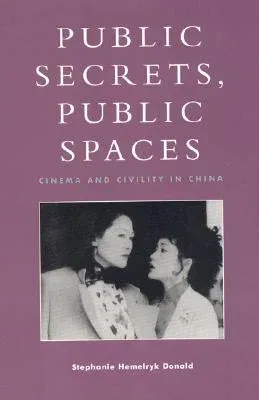Cinema produces an imaginary space where audiences can make themselves
visible in public, share ideas and criticisms, and establish their
identity as part of a transitory but nonetheless satisfying cultural
body. Public Secrets, Public Spaces explores the possibility of symbolic
public space in the context of Chinese cinema. Focusing especially on
women, children, and the dispossessed, Stephanie Donald looks at the
ways public space is constructed and occupied, both in the Chinese
cultural sphere and in the world of international audiences. Drawing on
the debate over civil society, the author argues that traditional
concepts of public sphere and civil society are unlikely to apply to
contemporary China, yet there may be common elements that do move across
and between cultural and political boundaries. Civility is one such
element, built up of culturally specific virtues and relationships that
form the public secrets of social survival. Public secrets are the
unstated common-sense knowledges of everyday life, extraordinary to
those who are not initiated into the routines of a particular cultural
place and space. In traditional societies public secrets are organized
through observable ritual, while in modern societies they are embedded
in the cultural discourse of the routine and the everyday. As we see in
this provocative book, film offers a rich medium for unearthing these
secrets.

